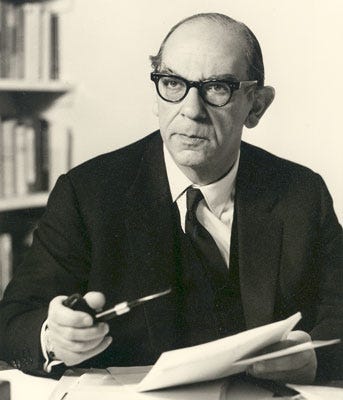
At the core of Berlin’s democratic vision is value pluralism: the belief that human values are many and ultimately incomparable. Liberty, equality, justice, and happiness are all desirable, however, they can continue to come into tension with each other. Berlin argues that democracy is valuable because it offers a flexible system to balance these competing values through public debate, compromise, and institutional safeguards.
Berlin’s most famous contribution is between negative and positive liberty. In his 1958 essay Two Concepts of Liberty: he explains liberty can mean freedom, particularly from the state, or that of finding one’s true self. While both concepts show their value in society, Berlin warned that positive liberty can be twisted into totalitarian goals. In short, Berlin declared that negative liberty should be the focus of democracy so the people would have limited interference from the government in their lives.
In addition to this, Berlin was known for rejecting utopian ideas altogether. He argued that grand theories of promised perfect societies would lead to the suppression of dissent. Since no single value system can claim complete power, democracy’s core strength lies in its acceptance of constitutional law, separation of powers, and civil liberties to help preserve as much freedom as possible.
Isaiah also heavily emphasized tolerance and moderation. A society must allow a wide range of beliefs and ways of life, even those that challenge the majority. While limited, tolerance is critical to protecting rights and fostering a peaceful coexistence. In short, the goal of democracy is not to impose a unified vision but to manage disagreements without the use of violence.
Finally, Isaiah Berlin viewed democracy as a system of safeguards rather than ideal outcomes. Institutions that protect individuals from power more than the standard majority rule. Democratic systems, in other words, are justified because they limit tyranny and uphold the most basic liberties in a complex society.



